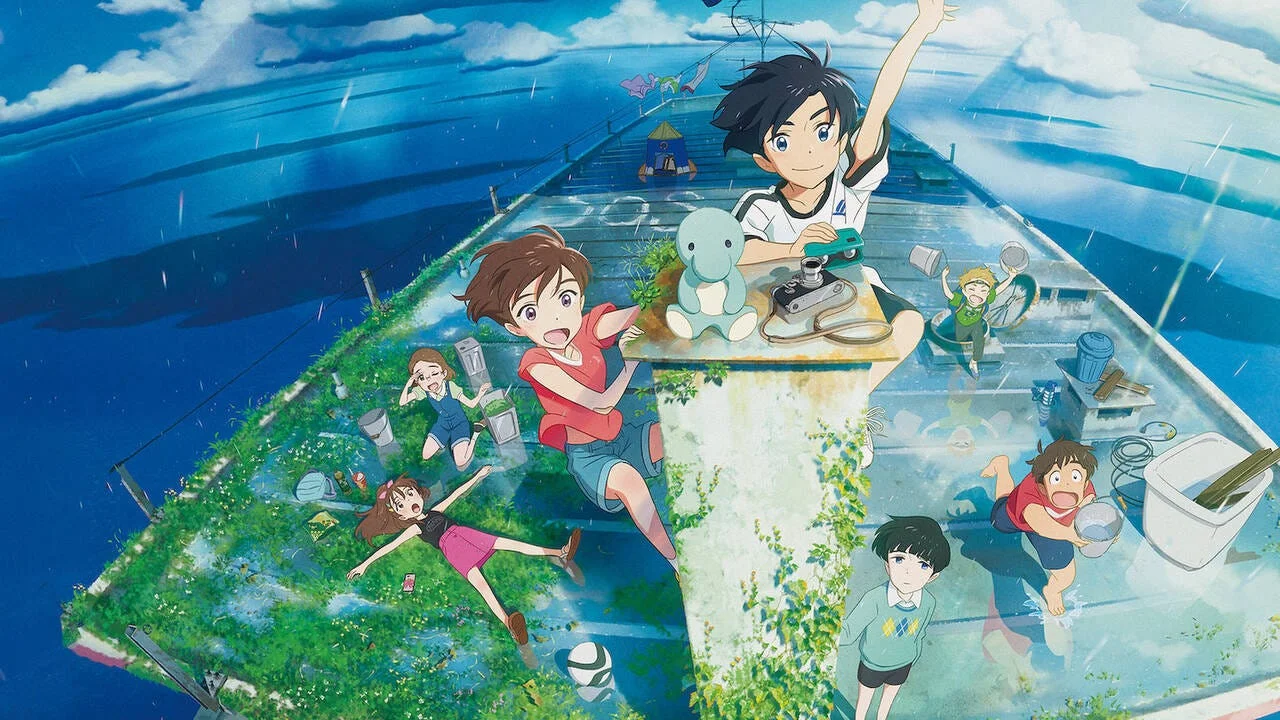Drifting Home unfolds as a Japanese animated fantasy, navigating the coming-of-age journey of a group of sixth graders who find themselves adrift in a haunted apartment complex after a flash flood propels them into an expansive and seemingly boundless ocean. While the film explores the valuable lessons learned and friendships forged during this odyssey, the central premise of a tight-knit group of friends navigating a space void, devoid of sustenance and fresh water, steals the spotlight.
Led by the de facto group leader, Kosuke (Mutsumi Tamura), and his childhood friend Natsume (Asami Seto), the youngsters grapple with the realization that they must cherish their loved ones while also understanding the importance of letting go. Despite this poignant thematic core, the movie’s initial setup proves more captivating than the characterization of its lively protagonists. The film oscillates between a light-hearted tone and intermittent bursts of disaster movie peril, creating a somewhat dissonant viewing experience. Surprisingly, a premise involving children tumbling through a rift in the space-time continuum doesn’t translate into an animated spectacle as riveting as it might sound.
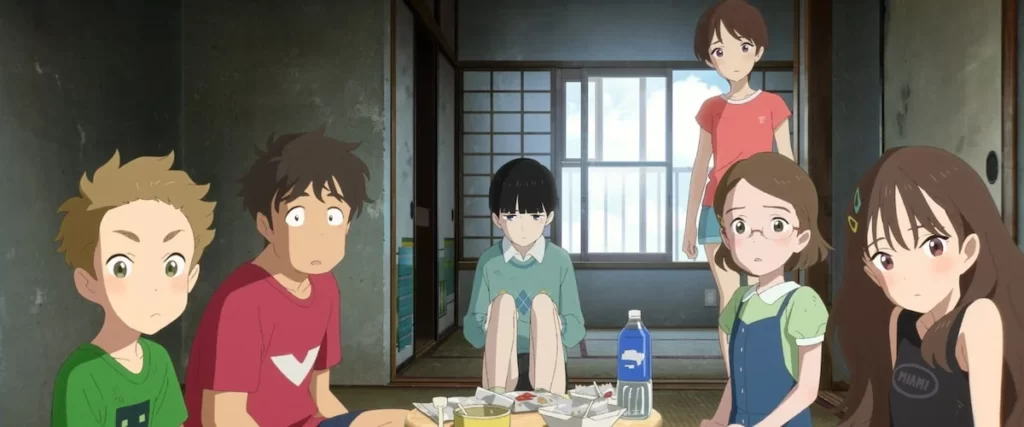
For manga enthusiasts, Drifting Home may evoke echoes of The Drifting Classroom, Kazuo Umezu’s unsettling horror comic that shares a similar central concept. Umezu’s manga portrays grade schoolers trapped in time after an enigmatic catastrophe hurtles their school into a dystopian future, offering a darker and more imaginative narrative than the comparatively lighthearted Drifting Home, which features fewer elements of horror like mutant spiders and child crucifixions.
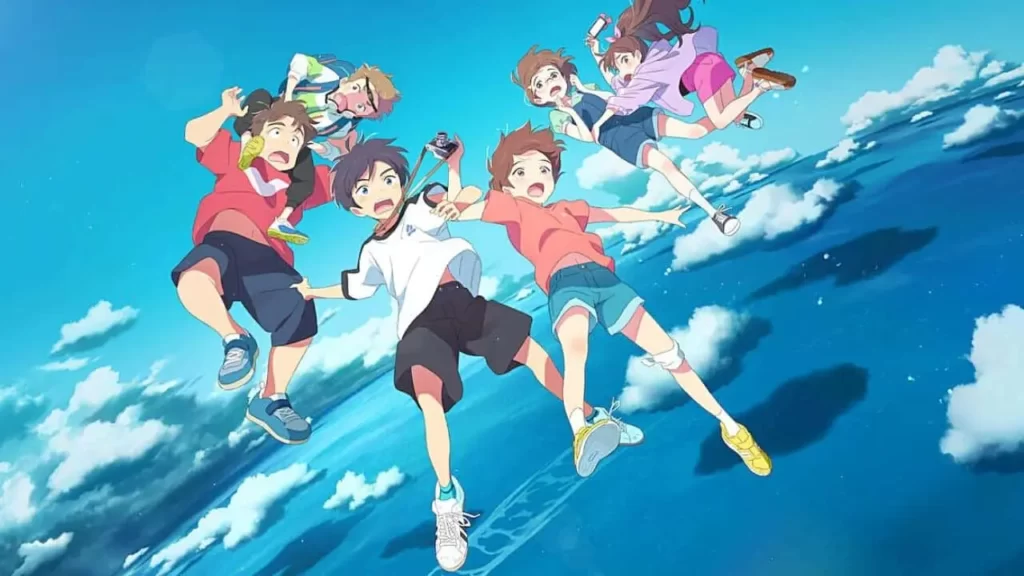
In Drifting Home, Kosuke reluctantly accompanies his boldly curious friends, Taishi (Yumiko Kobayashi) and Yuzuru (Daiki Yamashita), as they venture into the aged Kamonomiya projects, a building with a 60-year history. Among the characters, Kosuke stands out as the most well-developed, primarily due to his connections beyond mere friendship. He grapples with the recent loss of his grandfather, Yasuji (Bin Shimada), and supports his overworked mother, Satoko (Nana Mizuki). Despite the association of the Kamonomiya building with Yasuji’s memory, Kosuke leads his friends in exploration. Later in the narrative, he reunites with Natsume, who has played a surrogate family role in Kosuke’s life.
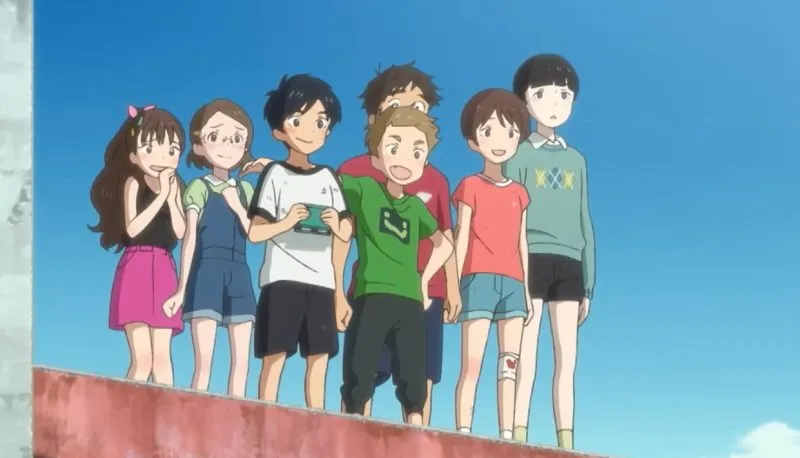
Adding an eerie touch to the storyline is Noppo (Ayumu Murase), a pale, ghost-like child haunting the Kamonomiya building. While a dream logic intertwines Noppo with Kosuke’s group, particularly emphasizing Kosuke’s emotional bond with Natsume, the connection’s significance diminishes over time. The floating shelter encounters various rundown and mostly uninhabited locations during their explorations, including a department store and other apartment complexes. These exploratory scenes contribute to the movie’s eventual resolution, albeit after a two-hour journey.
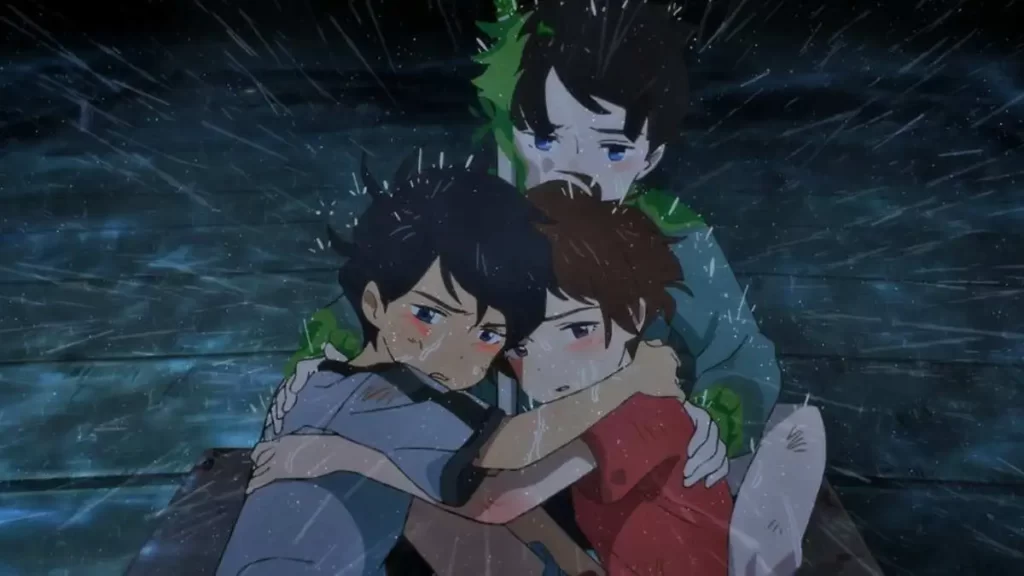
A notable challenge arises from the characters lacking profound psychological or emotional motivation beyond a general will to survive. Consequently, they spend excessive time on problem-solving rather than exploring the depths of their predicament. The narrative introduces circumstantial perils that compel Kosuke’s group to confront the surreal gravity of their situation. However, their responses often involve talking or foraging, presenting a survival horror narrative that veers toward the reassuring side of its nightmarish premise. This approach raises questions about the narrative’s purpose, leaving viewers with pre-fabricated life lessons and a sense of familiarity with the premise.
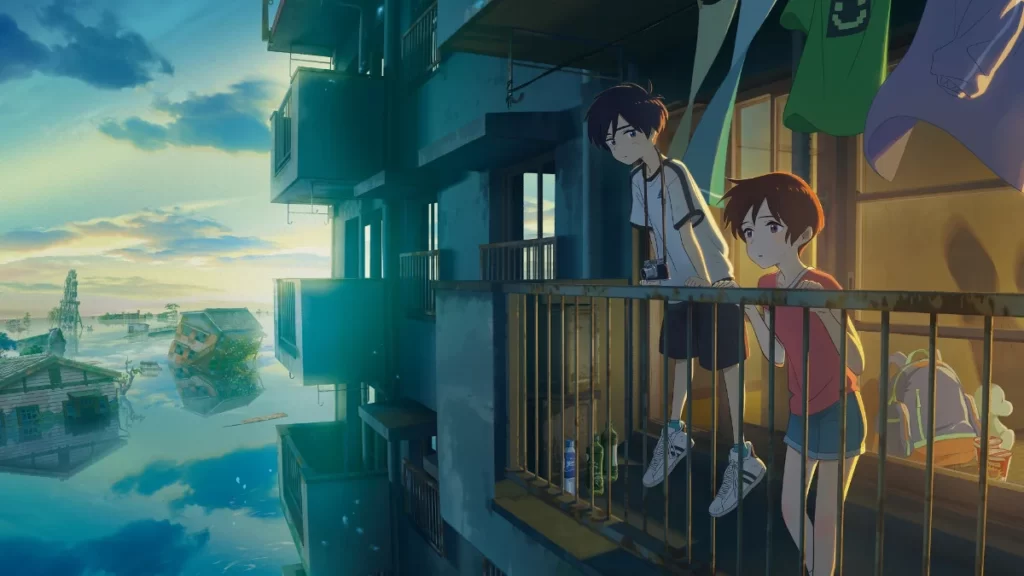
Drifting Home is most effective when embracing its straightforward disaster movie elements, emphasizing the group’s quest for supplies and, later, the impending collapse of the Kamonomiya building (revealing that they are floating at sea is not a spoiler). In Drifting Home Challenges arise when the narrative delves into more profound questions, particularly surrounding Noppo and the complex, largely unexplored relationship between Kosuke and Natsume. The film loses its allure when significant time is devoted to dispensing insubstantial and unnecessary explanations about the cataclysmic and ostensibly impossible event. Sometimes, maintaining the fantastical nature of a fantasy is crucial.
The fundamental issue with Drifting Home lies in its failure to mirror its characters’ emotional states with its central premise. While the movie boasts rich, lived-in details in its production design, particularly within the Kanomiya’s layout and haunted atmosphere, this evocative setup falls short of shedding light on Kosuke and Natsume’s underdeveloped relationship. Their connection primarily evolves through stagnant conversations rather than dynamic, crisis-driven adventures. The narrative, designed with a younger audience in mind, is not overly complex, and Drifting Home ends up being memorable only for its unrealized potential.
Also Read: Spirited Away: Miyazaki Film Review
